15 Mar 2022
Our members are the heart of Engineering New Zealand and it is crucial we understand your needs.
In 2021, we carried out a member survey to strengthen our understanding of your needs and shape our business priorities. Engineering New Zealand represents 22,000 members, and this survey canvassed 1,294 members, 138 former members, and 95 non-members to get a full picture of what you want from your membership, and what motivates you to become members.
A selection of headline results from the survey can be viewed below and the full survey results are available to view here. These will also be used as part of the review of Engineering New Zealand’s Strategy that the Board is leading in May. A few key themes came through:
- You require more support to become more effective engineers. This includes representing a broader range of engineering disciplines.
- You need to be engaged throughout your membership lifecycle – and typically engagement drops away after a few years. You require more from us a few years into your career.
- You may need us to consolidate the services and products we offer. There may be some things you need us to stop doing, and there may be others you need us to start doing.
We have developed an Action Plan below based on the recommendations highlighted in the member survey results.
Your voice is important to us. We welcome further feedback on both the member survey findings and our organisational response through emailing us at hello@engineeringnz.org by the end of April 2022.
Overall satisfaction of membership
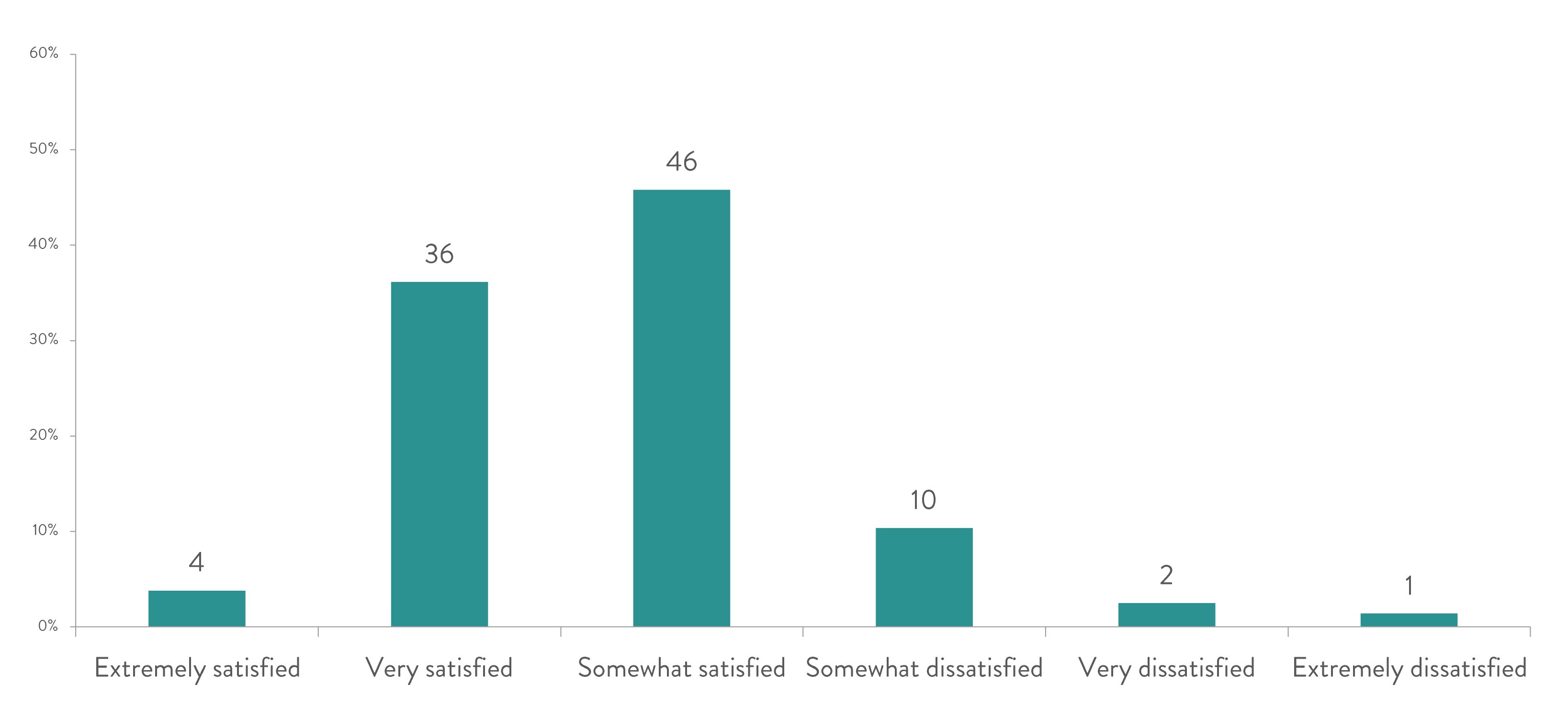
Satisfaction with membership is reasonably positive but with room for improvement.
There are relatively few dissatisfied members (13%) whilst 40% are extremely/very satisfied.
Net promoter score
(Likelihood to recommend Engineering New Zealand membership to an engineering colleague who isn’t already a member)
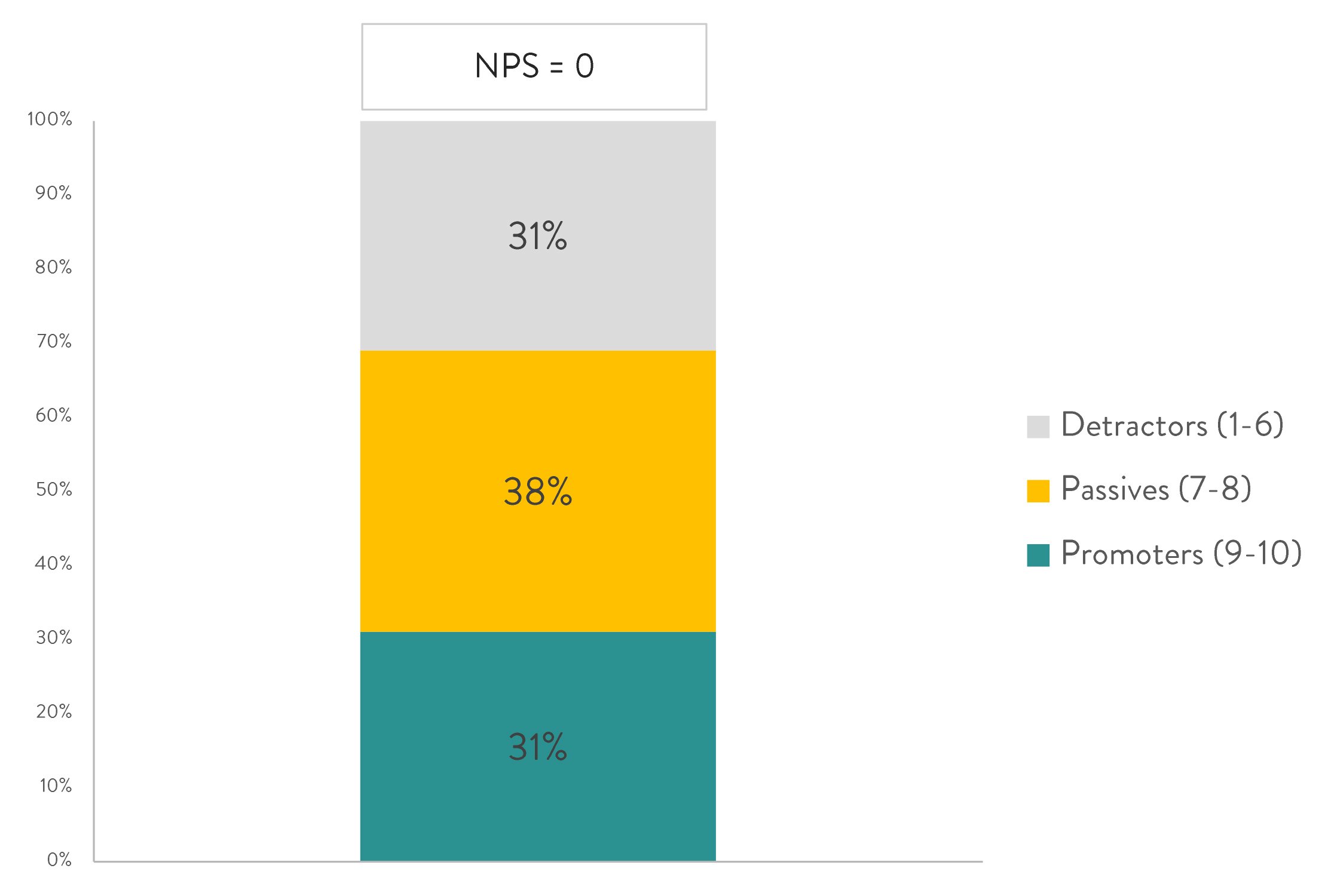
Engineering New Zealand has many promoters as it does detractors.
The NPS of 0 is about on par/slightly below the norm for membership organisations.
Engineering New Zealand delivery against reason for joining
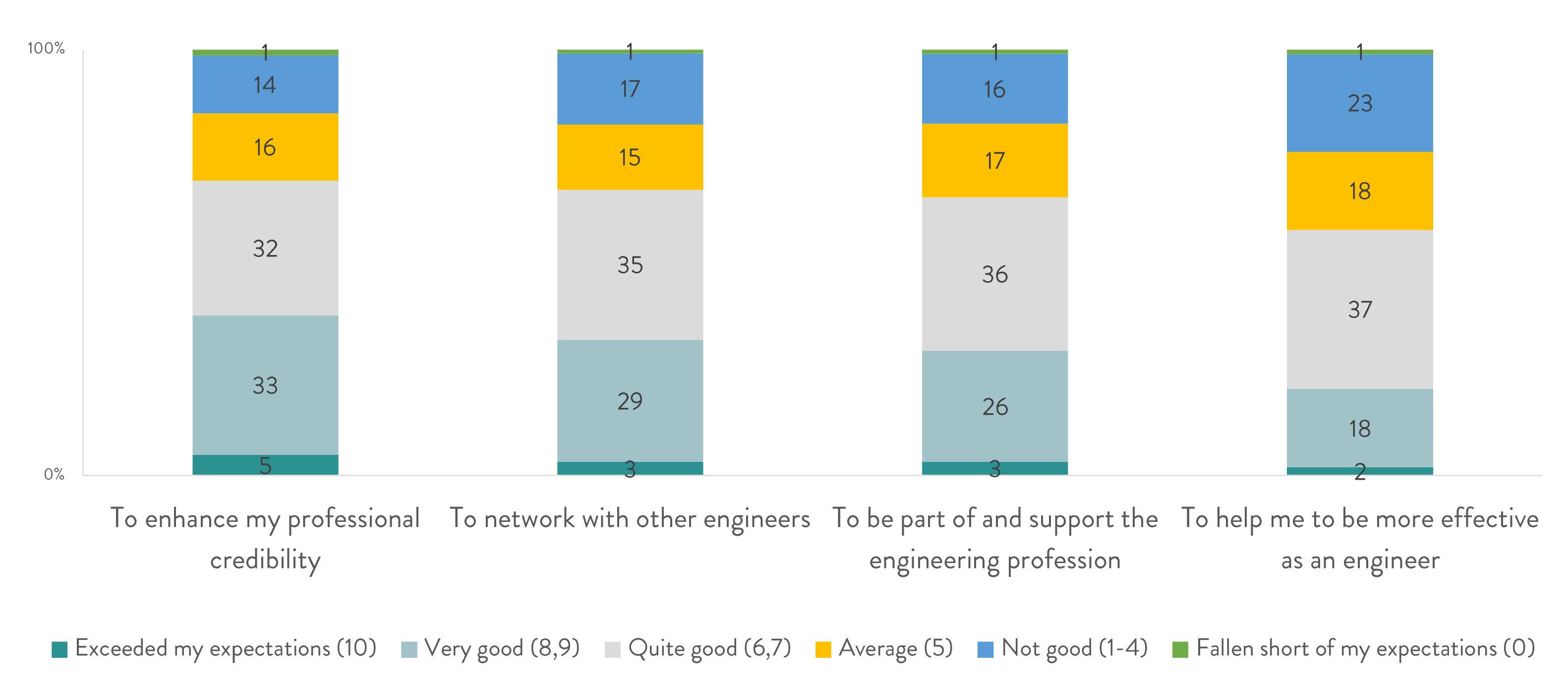
Satisfaction is highest for enhancing credibility, though 31% say average, not good or worse.
Scores are reasonably consistent except for making them more effective as an engineer, where 42% rate delivery as average or worse.
Overall satisfaction with membership
(% Extremely very satisfied)
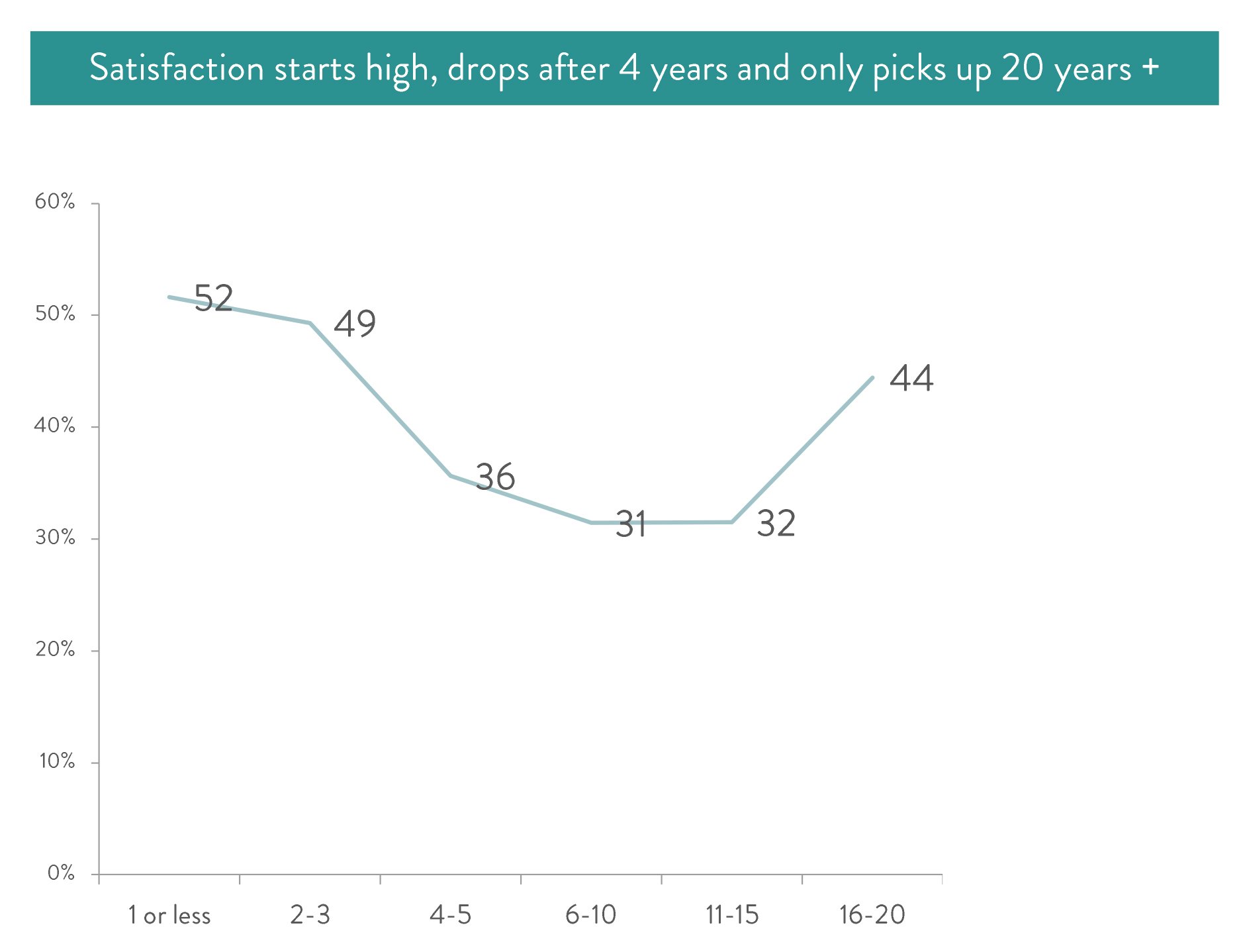
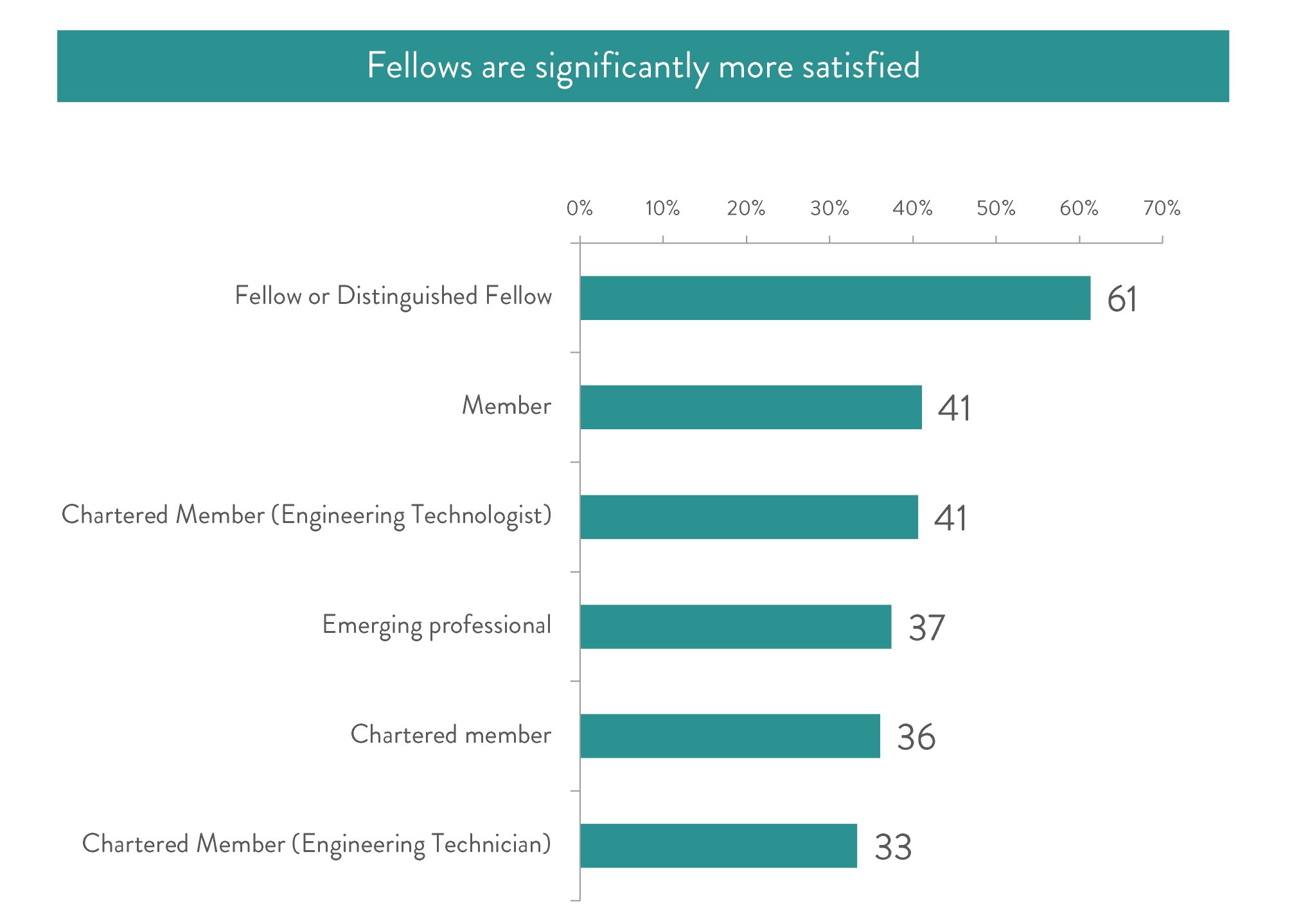
Perceived engagement with Engineering New Zealand
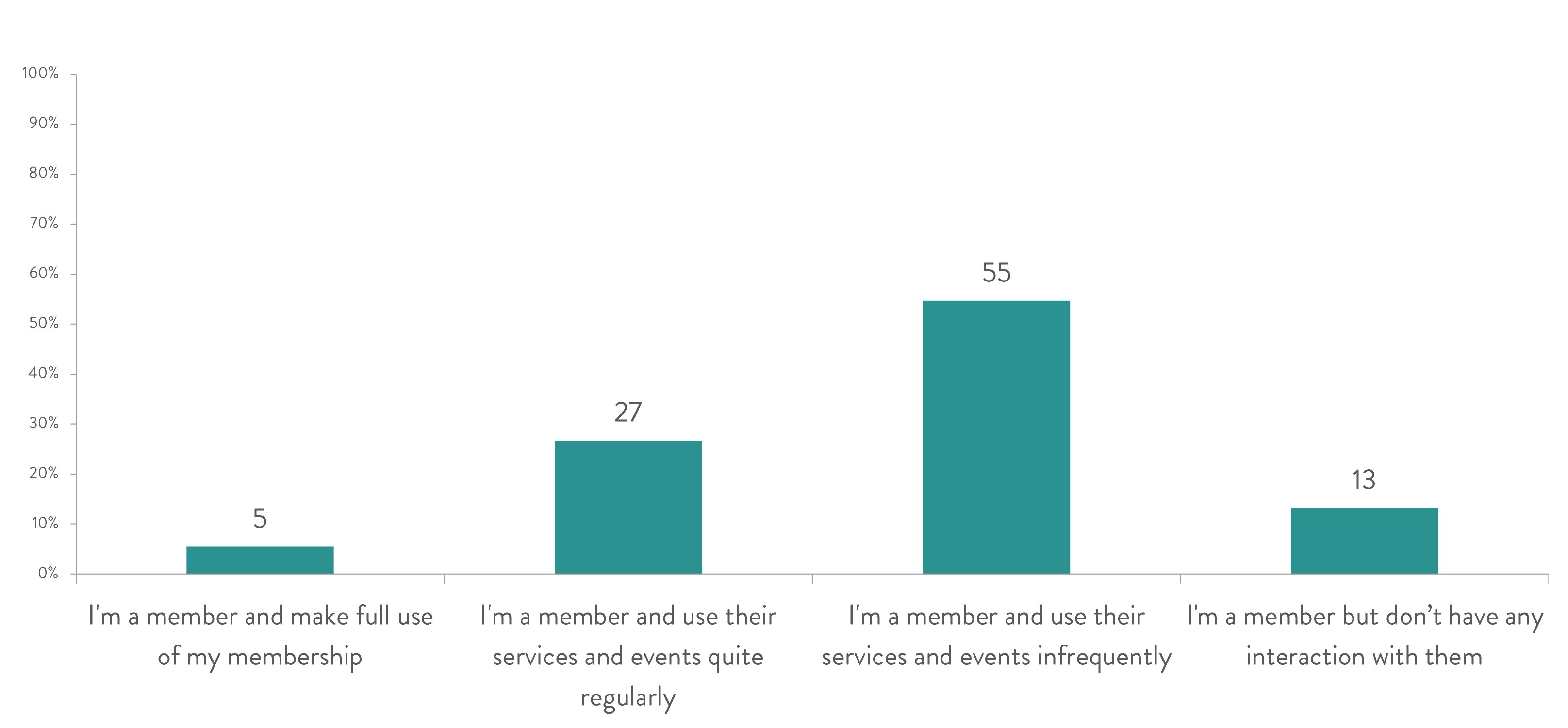
Engagement with membership is quite low.
Just under one third of members feel strongly engaged (make full use of membership/use the services and events regularly).
55% use services/events infrequently and 13% have no interaction.
Services/Events use/Engage with (prompted list)
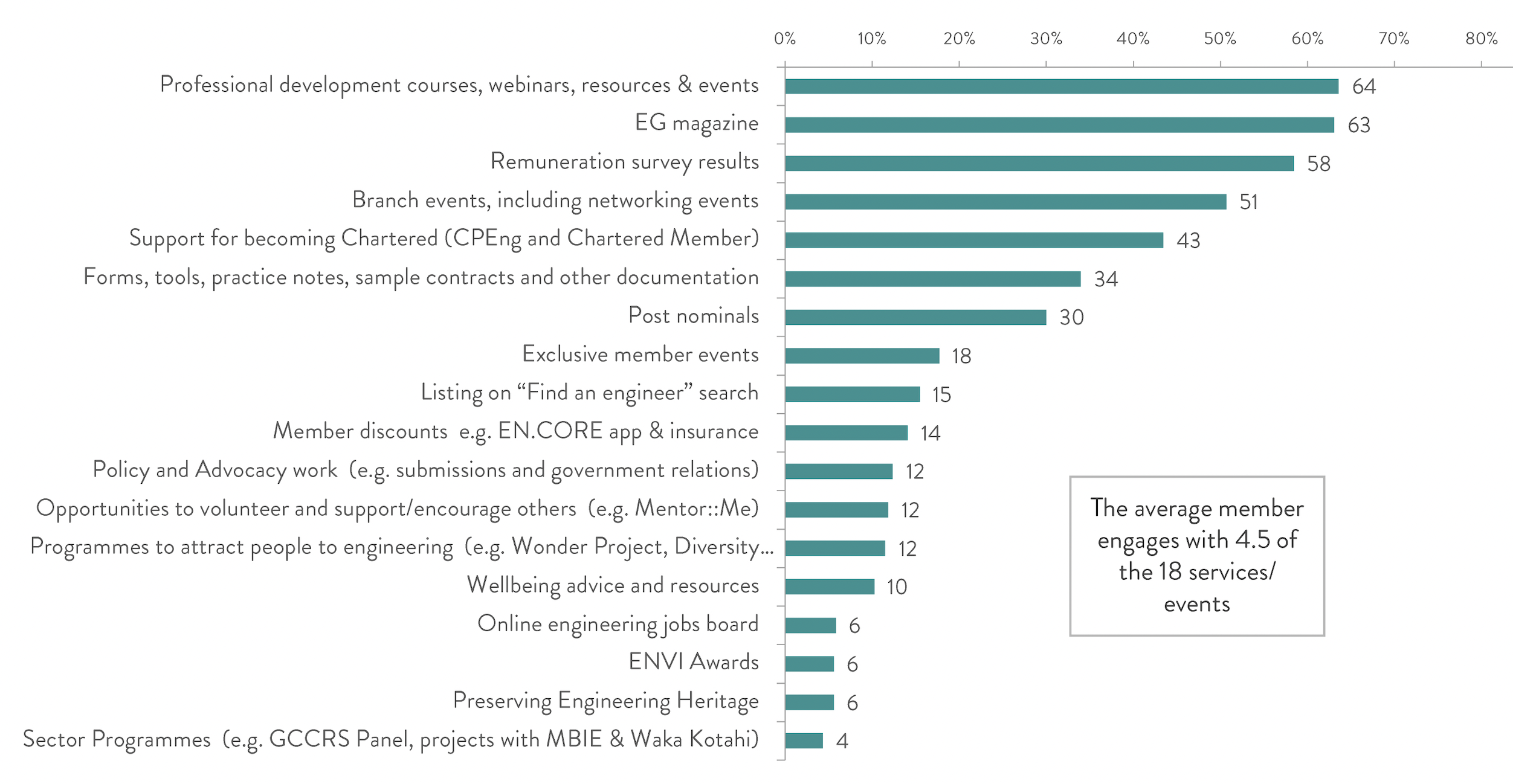
PD courses, EG magazine are the most engaged with, followed by the remuneration survey and events.
14 services are used by less than half of members.
11 are used by less than 20%. Opportunities for rationalisation and resource reallocation.
Tenure
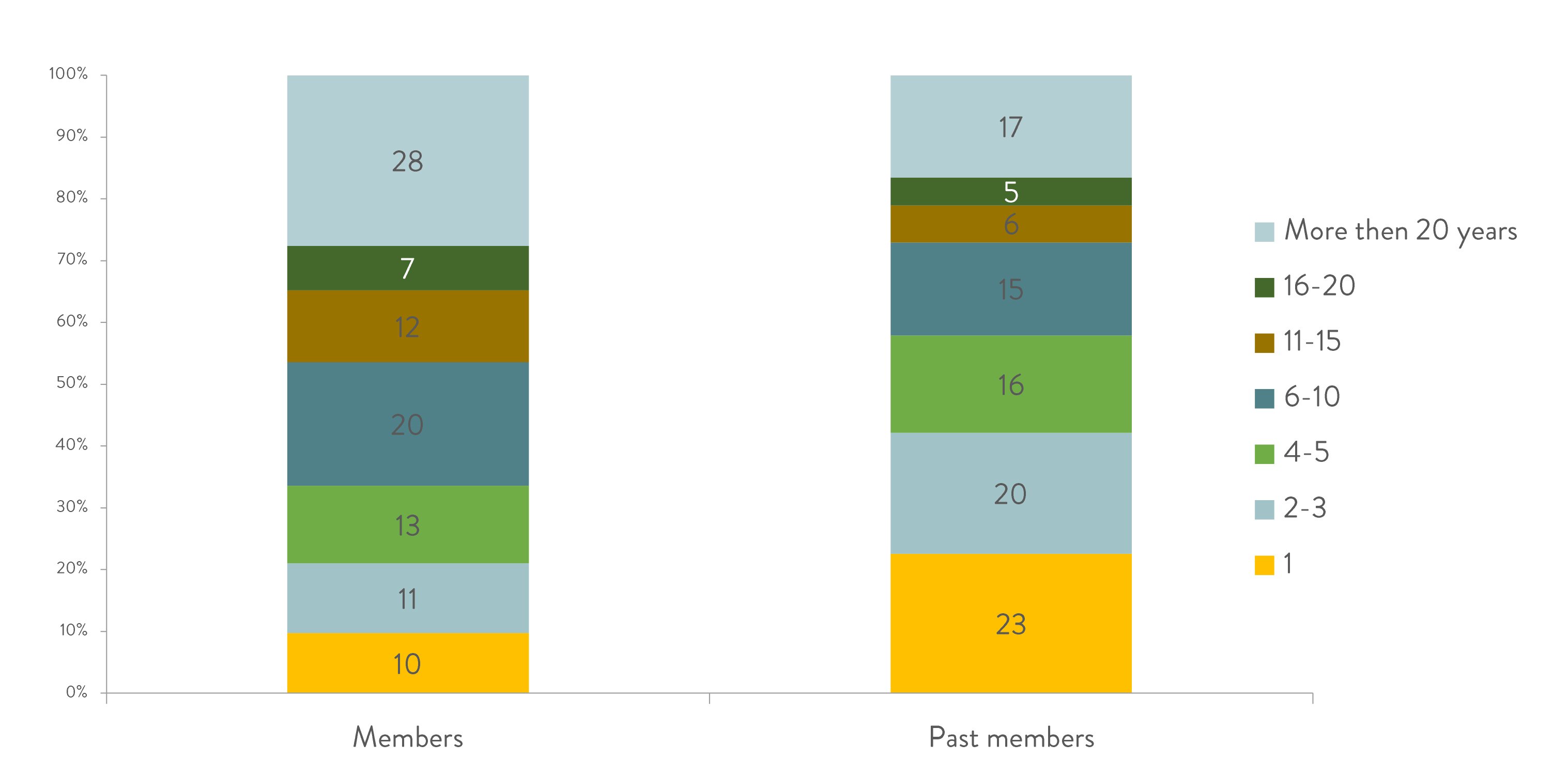
Reason why resigned or did not renew their Engineering New Zealand Membership
(Prompted list)
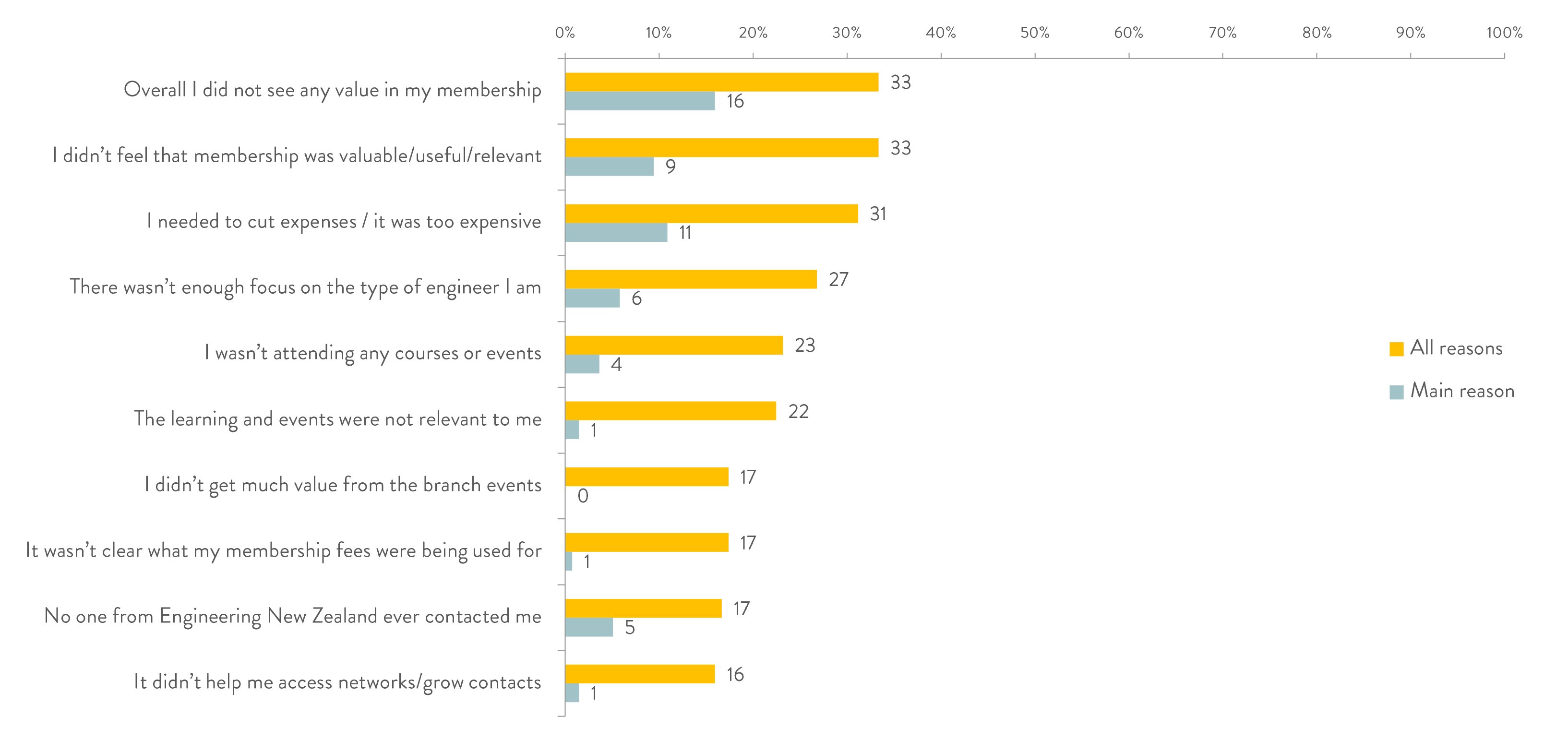
Three core reasons for leaving that are all linked; they did not see the value in membership.
A perceived lack of focus on their field is also a contributory factor.
Why they haven't become a member of Engineering New Zealand
(Prompted list)
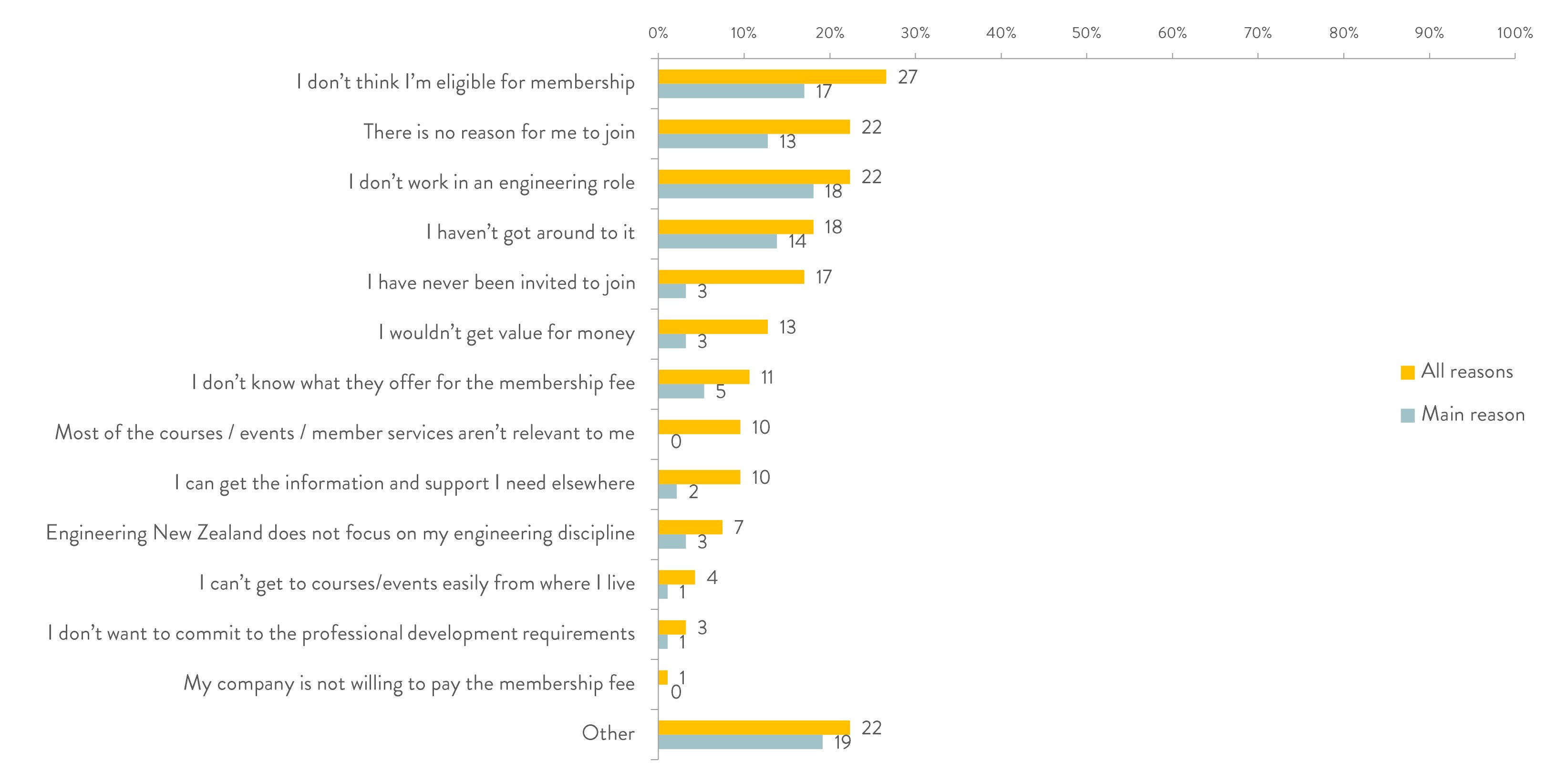
There are four key barriers to them joining.
Lack of perceived eligibility (including not being in an engineering role).
But 22% see no reason and 18% just haven’t got around to it.
Likelihood of becoming a member of Engineering New Zealand in the next year
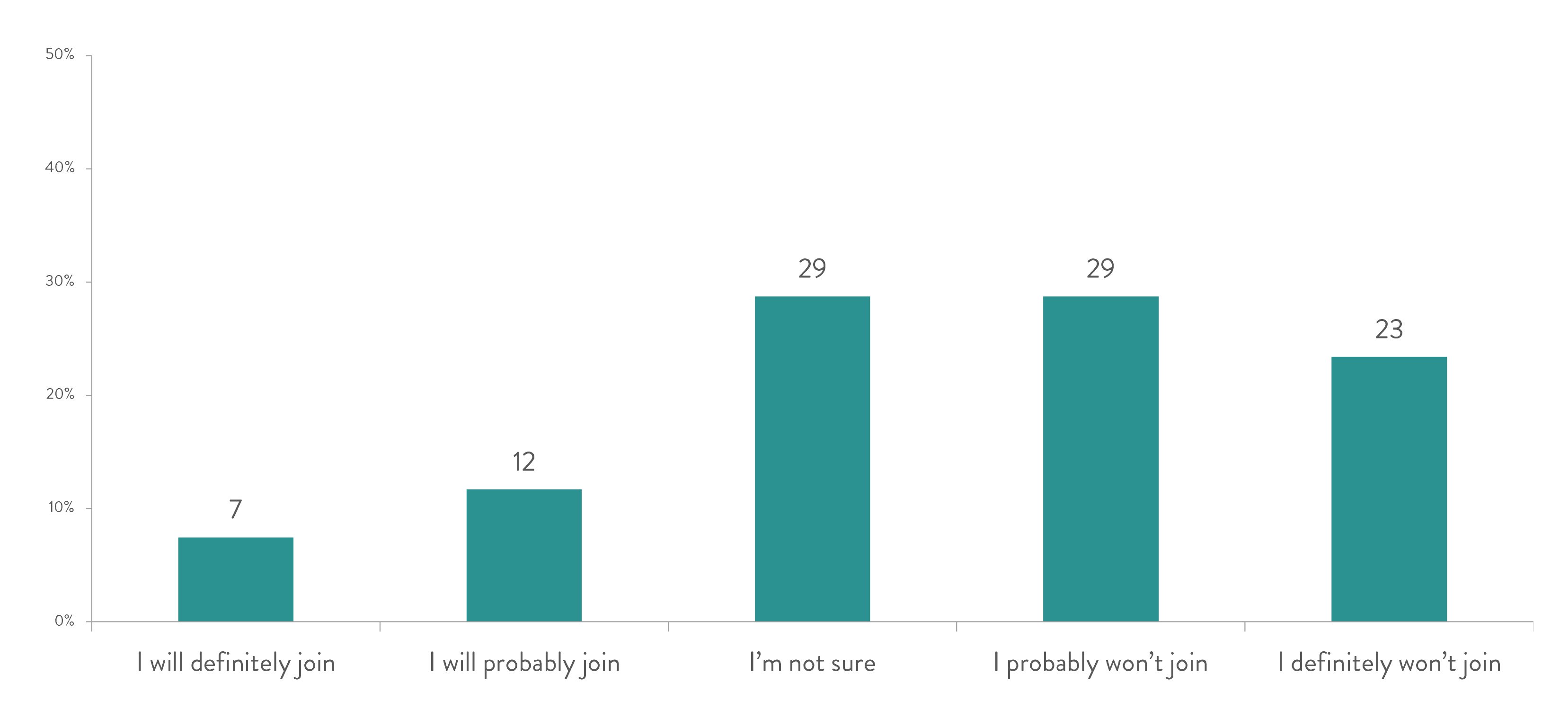
There is potential with this group to convert many to membership.
19% are definitely/probably likely to joining with a further 29% unsure.
Action Plan
Our research partner Haymakr provided us with six implications and recommendations in their report, these are outlined below along with our Action Plan.
1.“At a macro level, supporting members to become more effective engineers is a core need that is not being delivered to and something members want more of. They want more technical support.”
Actions we are taking in response to this recommendation:
- Expand the scope of our successful engineering practice programme to a broader range of engineering disciplines. This will build the existing range of practice notes, producer statements and templates, as well as running the Lessons Learnt initiative.
- Continue to produce technical guidance, training and assessment programmes through the Sector Programmes Team who work in partnership with government regulators and others.
- Continue to expand the support we provide to Engineering New Zealand Groups. This includes identifying potential opportunities to grow the number of Technical Groups.
- Create a professional development online portal that will provide guidance and resources for members to determine their capability needs.
- Develop and implement a professional development framework to support engineers’ career development.
- Continue roll-out of major programmes including the Engineering Climate Action, Diversity Agenda and Kimihia Rangahaua that have made us more relevant to our members.
- Develop technical knowledge assets, and training and assessment programmes – such as for the Recognised Engineers register supporting new dam safety regulations, and for heavy vehicle engineers.
- Through the on-boarding process ensure new members are aware of the Engineering New Zealand Groups and Collaborating Technical Societies and the opportunities they provide.
2. From a member journey perspective, how can we onboard members so that engagement happens sooner? How can we deliver more after 3-4 years of membership, when satisfaction falls? Member journey mapping would help as a starting point to delivering a meaningful member experience.
Actions we are taking in response to this recommendation:
- Develop and implement a new member onboarding process. This will raise awareness of the technical and professional benefits of membership and take a more proactive approach to member engagement. We recognise the important role Branches play in the member journey and will be working with them on this.
- We will implement tailored approaches for specific member segments. This will include focusing on those in the first 3-4 years of their membership.
3. The other macro level challenge is engagement, it needs to be higher if we want a more secure and satisfied member base.
Comment:
- The survey results show that members who engage with our services have higher levels of overall satisfaction. This is encouraging and points us towards focusing on growing effective programmes such engineering practice, professional development, the CPEng review and sector programmes.
4. The service and event portfolio needs to be rationalised. Where possible resources should be reallocated to more meaningful places (for members).
Actions we are taking in response to this recommendation:
- We will review the current service and event portfolio in the current financial year as part of a review of the Engineering New Zealand strategy. We will use the survey results as part of the portfolio review.
5. Another key question is how Engineering New Zealand can deliver across different engineering fields. It is why members leave, why they join other organisations and why non-members don’t join.
Actions we are taking in response to this recommendation:
- Continue to expand the support we provide to Engineering New Zealand Groups. This includes identifying potential opportunities to grow the number of Technical Groups.
- Through the on-boarding process ensure new members are aware of the Engineering New Zealand Groups and Collaborating Technical Societies and the opportunities they provide.
- Expand the scope of our successful engineering practice programme to a broader range of engineering disciplines. The programme expanding the current range of practice notes, producer statements and templates, as well as running the Lessons Learnt initiative.
- Target new partnerships through Sector Projects that will lead to resources for a wider range of engineering disciplines.
6. There is a significant opportunity to attract many of the non-member cohort by explaining member benefits.
Actions we are taking in response to this recommendation:
- We will implement recruitment campaigns for targeted groups of potential members. This will tie in with the work to improve onboarding and members’ journeys.





